
"No Rain" is a song by American rock band Blind Melon. It was released in 1993 as the second single from the band's debut album Blind Melon. The song is well known for its accompanying music video, which features the "Bee Girl" character. The music video, directed by Samuel Bayer, received heavy airplay on MTV at the time of its release. It subsequently helped propel Blind Melon to a multi-platinum level.

"Because We Want To" is a song performed by British pop singer Billie. The song was written by Dion Rambo, Jacques Richmond, Wendy Page, and Jim Marr and produced by Marr and Page for Billie's debut album, Honey to the B (1998). It was released as her debut single on 29 June 1998 and entered the UK Singles Chart at number one in July 1998, making Billie the youngest artist to debut at number one, at age 15. It also reached the top 10 in Ireland, New Zealand, and Sweden. The song was the official theme of the 1999 FIFA Women's World Cup.

"What I Am" is a song written by Edie Brickell and Kenny Withrow and recorded by Edie Brickell & New Bohemians for their debut album, Shooting Rubberbands at the Stars (1988). The song is highlighted by a guitar solo that notably features an envelope filter. It peaked at number seven on the US Billboard Hot 100, topped the Canadian RPM 100 Singles chart, and became a top-20 hit in Australia and New Zealand. "What I Am" was ranked number 23 on VH1's list of the "100 Greatest One-Hit Wonders of the 80s".
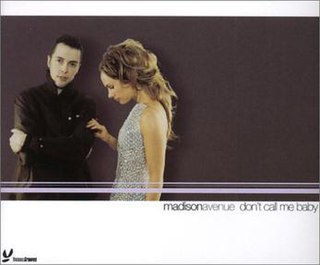
"Don't Call Me Baby" is a song by Australian house music duo Madison Avenue, released as the first single from their only studio album, The Polyester Embassy (2000). Written by Cheyne Coates, Andy Van Dorsselaer, Duane Morrison, and Giuseppe Chierchia, the song includes a bassline sample from "Ma Quale Idea" by Italo disco artist Pino D'Angiò, which in turn is based on "Ain't No Stoppin' Us Now" by McFadden & Whitehead.

"Pepper" is a song by American alternative rock band Butthole Surfers from their seventh studio album, Electriclarryland (1996). Released on April 11, 1996, the track reached number one on the Billboard Modern Rock Tracks chart and number 29 on the Billboard Hot 100 Airplay chart, becoming the top-ranked song of 1996 on the former listing. In Australia, the song peaked at number 15 on the ARIA Singles Chart and was ranked number four on Triple J's Hottest 100 of 1996. It also reached number two on the Canadian RPM Alternative 30 and number 32 in New Zealand.

"Ordinary World" is a song by English rock band Duran Duran, released in December 1992 as the first single from their self-titled album (1993), commonly known as The Wedding Album. The ballad reached No. 1 on the US Billboard Top 40/Mainstream chart, the Canadian RPM 100 Hit Tracks chart, and the Italian Singles Chart. It also peaked at No. 3 on the Billboard Hot 100, No. 2 in Iceland and Sweden, and No. 6 on the UK Singles Chart.

"On the Radio" is a song by American singer-songwriter Donna Summer, produced by Italian musician Giorgio Moroder, and released in late 1979 on the Casablanca record label. It was written for the soundtrack to the film Foxes and included on Summer's first international compilation album On the Radio: Greatest Hits Volumes I & II.

"Love Is Strong" is a song by English rock band the Rolling Stones, released as the opening track, and first single, from their 20th British and 22nd American studio album, Voodoo Lounge (1994). Issued as a single on 4 July 1994 by Virgin, the song preceded the release of Voodoo Lounge by a week. "Love Is Strong" peaked at No. 14 in the band's native United Kingdom and at No. 2 in Canada and Finland but stalled at No. 91 on the US Billboard Hot 100. Despite this, it peaked at No. 2 on the Billboard Album Rock Tracks chart. The song's accompanying music video received heavy rotation on MTV Europe.

"My Love Is for Real" is a song by American singer and songwriter Paula Abdul with backing vocals from Israeli singer Ofra Haza. It was released on May 30, 1995, as the first single from Abdul's third studio album, Head over Heels (1995). Intended as Abdul's comeback single, "My Love Is for Real" reached number one in Hungary and the top 20 in Australia, Canada, and New Zealand, but it stalled outside the top 20 in the United States, peaking at number 28 in the Billboard Hot 100, and failed to make a major impact in Europe.

"She Wants You" is a song originally performed by Slovak singer Dara Rolins. The song, written by Tim Lawson and Pam Sheyne, was issued on Rolins' studio album What You See Is What You Get in 1996. The song then became a hit single in 1998 when English singer turned actress Billie covered it.

"On Silent Wings" is a song by American singer-songwriter Tina Turner with guest vocals from English musician Sting. Released in May 1996 in support of Turner's ninth album, Wildest Dreams (1996), the single performed well on the US and Canadian adult contemporary charts, peaking at numbers 24 and 13 respectively. The dance version of "On Silent Wings", remixed by Soul Solution, charted at number 47 on the US Billboard Dance Club Songs chart. Like much of Turner's later work, "On Silent Wings" enjoyed greater success in the United Kingdom, peaking at number 13 on the UK Singles Chart.

"Star People '97" is a song by British singer George Michael, released as the fifth single from his third studio album, Older (1996). It was written and performed by George Michael and was released by Virgin Records in the United Kingdom and DreamWorks Records in the United States. The lyrics make reference to the materialism and frivolity of certain (unspecified) people in show business, suggesting that those behaviours are derived from some insecurity or a bad childhood. The single version is titled "Star People '97", on most issues, because the track was re-recorded for the single release.
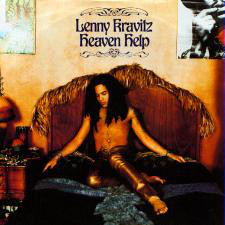
"Heaven Help" is a song by American rock musician Lenny Kravitz, released in August 1993 as the third single from his third studio album, Are You Gonna Go My Way (1993). The song made a brief appearance on the US Billboard Hot 100, reaching number 92. In the United Kingdom, it became his second top-twenty hit from Are You Gonna Go My Way, peaking at number 20, and in Canada and New Zealand, the song reached the top 30. It was later included on Kravitz' compilation album Greatest Hits.

"She's a River" is the first single released from Scottish rock band Simple Minds' 11th studio album, Good News from the Next World. Written by band members Charlie Burchill and Jim Kerr, the song was inspired by Herman Hesse's novel Siddhartha, a book about self-discovery. Released on 11 January 1995, "She's a River" reached number three in Canada and Italy, number seven in the Flanders region of Belgium, and number nine on the UK Singles Chart. In the United States, it peaked at number six on the Billboard Album Rock Tracks chart.

"Everyday" is a song by English musician Phil Collins, released as the second single of his fifth studio album, Both Sides (1993). The single achieved success mostly in North America in early 1994. In 2004, it was included as the seventh track on Collins' compilation album Love Songs: A Compilation... Old and New.
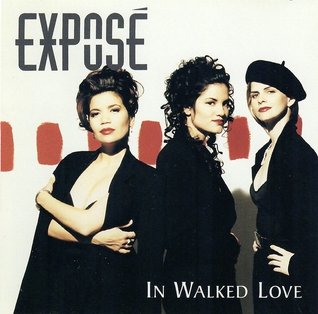
"In Walked Love" is a song by the American girl group Exposé. Written by Diane Warren and produced by Steve Thompson and Michael Barbiero, the song can be found on the group's 1992 album Exposé, their third studio album. Lead vocals on the pop ballad were performed by Ann Curless. The song features Al Pitrelli as guest guitarist. In 1996, British singer Louise covered the song and reached number 17 on the UK Singles Chart with her rendition.

"Wrong" is a song written and recorded by English musical duo Everything but the Girl. It was released on 17 June 1996 as the second single from their ninth album, Walking Wounded (1996). A club remix of the song provided by Todd Terry went to number-one on the US Billboard Hot Dance Club Play chart. The remix also reached number two in Italy and number eight in Canada and the United Kingdom.
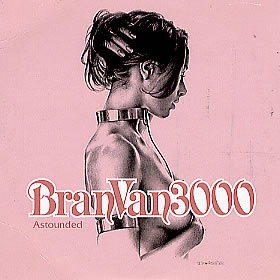
"Astounded" is a song by Canadian musical collective Bran Van 3000 featuring vocals from American artist Curtis Mayfield. The song contains interpolations from Mayfield's song "Move On Up" and also contains a sample and an interpolated melody of The Doobie Brothers' "Rockin' Down the Highway".
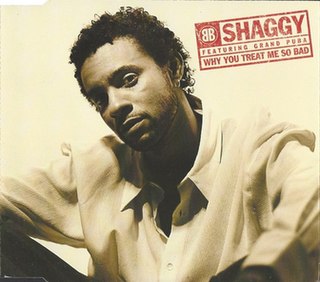
"Why You Treat Me So Bad" is a song by Jamaican-American reggae musician Shaggy featuring American rapper and emcee Grand Puba. It was released in 1995 as the second single from his third studio album, Boombastic (1995), and contains elements from "Mr. Brown" by Bob Marley. It was a notable hit in several countries, including Ireland, Italy, the Netherlands, New Zealand, and the UK, where it peaked at number 11.

"Squeeze Toy is a song by Canadian music production team the Boomtang Boys featuring vocals from Canadian Eurodance singer Kim Esty. Written by group members Rob DeBoer, Tony Grace, and Paul Grace, it was released in March 1999 as the second single from their first studio album, Greatest Hits Volume One. The song topped the Canadian Singles Chart for four weeks and became a top-10 radio hit, peaking at number 10 on Canada's RPM 100 Hit Tracks chart. A French-language version of the song titled "Mon joujou" was also recorded, featuring vocals from Diane DiVito.




















